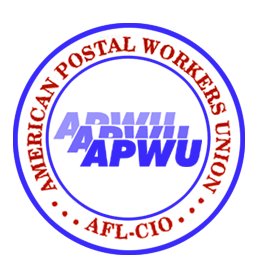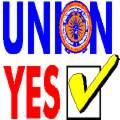THE BULLETIN BOARD
August 2008
2008 Pittsburgh Labor Day Parade
Monday, September 1, 2008 at 10:00 AM,
meet behind Mellon Arena at 9:00 AM
This year PMAPWU is marching in the white division, the second rotation. We will gather and line up on Mario Lemieux Place, which is right behind The Mellon Arena. Bring your friends and family, all are welcome.
For details, visit our Events page.REMINDER: Buy Your Tickets to the PMAPWU Holiday Party NOW!
A motion was passed at the January 2008 Membership Meeting for PMAPWU to host a Holiday Party this year. The motion also called for, depending on cost and participation, thereafter adjusting, so to host a biannual Solidarity Picnic alternating with a biannual Holiday Party, or vice-versa, beginning in 2009.
Holiday Party arrangements for a group our size must be made many months in advance, and so the 2008 Holiday Party is scheduled at St. John's Cathedral, Munhall, PA 15120, on Saturday, November 29, 2008.
Limited space is availalbe, and admission tickets will fist be provided to Members and their guests, on a first-come, first-served basis.
No non-member that works in an APWU-covered craft will be allowed as a guest. There will be no fee for Members. Guest tickets were set at $75 by Membership Approval at our May 17, 2008 Membership Meeting.
Tickets can only be ordered through our Headquarter Office. Call, write, or stop in to secure your ticket. Guest tickets will not be issued without first receiving the fee, and that includes not issuing a guest ticket until the check clears.
House Passes FERS Sick-Leave Bill
excerpted from APWU Web News Article #74-08
The House of Representatives passed a bill July 30 that would grant postal workers and other federal employees covered by FERS (Federal Employees Retirement System) credit for unused sick leave when calculating their retirement annuities. Employees covered by CSRS (Civil Service Retirement System) already receive credit for unused sick leave.
Under the provision, federal employees who retire within three years from the date of enactment would receive credit for 75 percent of unused sick leave; employees who retire more than three years after enactment of the legislation would get full credit, similar to CSRS employees. Federal employees hired after 1983 are covered by FERS; most of those hired in 1983 and before are covered by CSRS.
H.R. 1108 also includes provisions of the Thrift Savings Plan Enhancement Act (H.R. 6500), which would automatically enroll new employees in the Thrift Savings Plan (TSP); allow the TSP Board to designate a fund other than the G Fund as the default investment fund; establish a Roth IRA option, and give the TSP Board authority to add additional, self-directed investment options.
The [tobacco] bill now moves to the Senate, where it may be considered in September, after Congress returns from its summer recess.
However, the Senate bill (S. 625) does not include the FERS sick-leave provisions. The fate of the FERS language may ultimately be decided in a House-Senate conference committee, if the Senate passes S. 625.
Read the entire article on the APWU News and Events page.
Postal Service wants limits on its universal service obligation
excerpted from an article by Gregg Carlstrom at FederalTimes.com
The U.S. Postal Service wants to exempt its competitive products— like Priority Mail and package services— from the universal service obligation. Doing so would allow it to cut back on offerings in sparsely populated areas where business is thin.
The Postal Service argues that those services shouldn't be treated differently than those of competitors such as FedEx, DHL and UPS. An exemption would allow the Postal Service to choose which competitive products it offers in a given market, and what standards of service to apply. Products covered by the universal service obligation— such as first-class mail— must be offered in a uniform fashion across the country.
Under the 2006 Postal Accountability and Enhancement Act, postal products were divided into two categories: market-dominant and competitive. Products in the former group— like first-class mail— are covered by the universal service obligation because the Postal Service has a monopoly over their delivery. But the latter group competes with products offered by commercial shippers like UPS and FedEx.
An exemption for the competitive products would be just one step toward restoring profitability at the financially troubled Postal Service. The agency posted a $706 million loss in the second quarter of 2008; decreasing mail volume and increasing fuel costs have squeezed its bottom line. And, the Postal Service can't rely on market-dominant products to reverse that trend: Price increases for those products are capped at the rate of inflation.
Read the entire article at the FederalTimes.com website.
Past Issues of the Bulletin Board
[July 2008]
[June 2008] [May 2008]
Use our Search function to look up further back-issues of the Bulletin Board.

